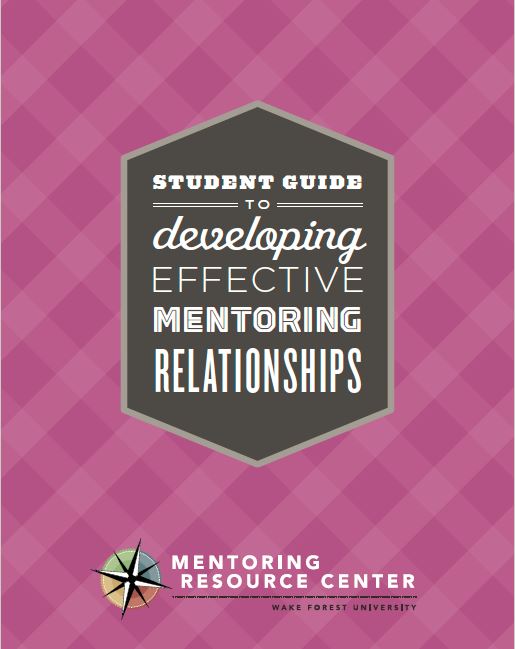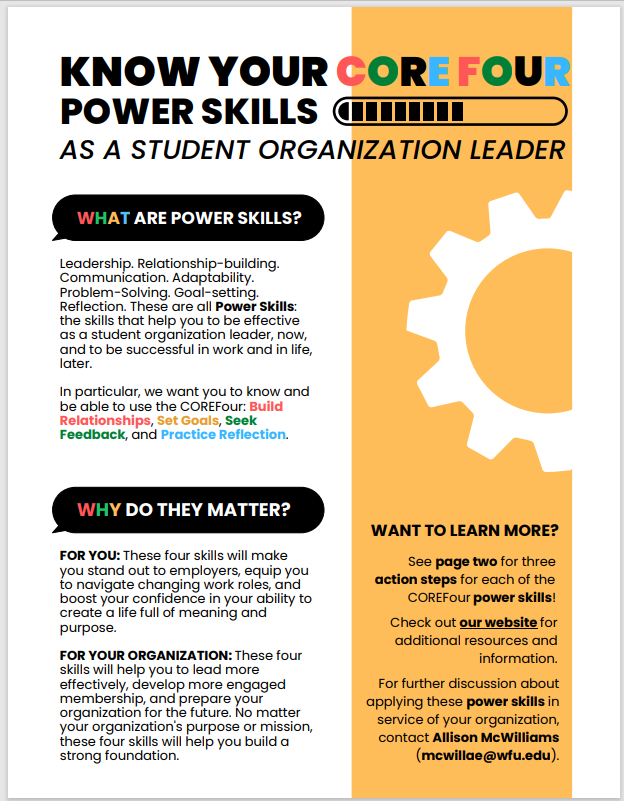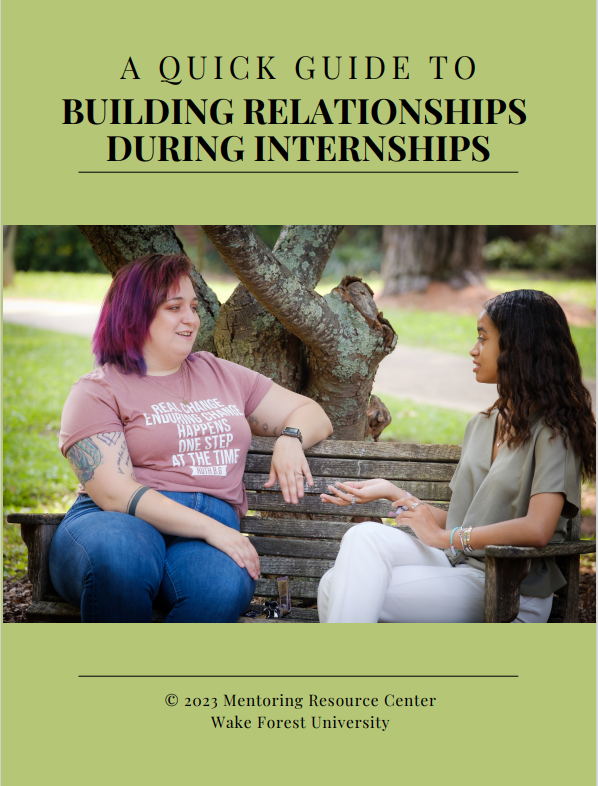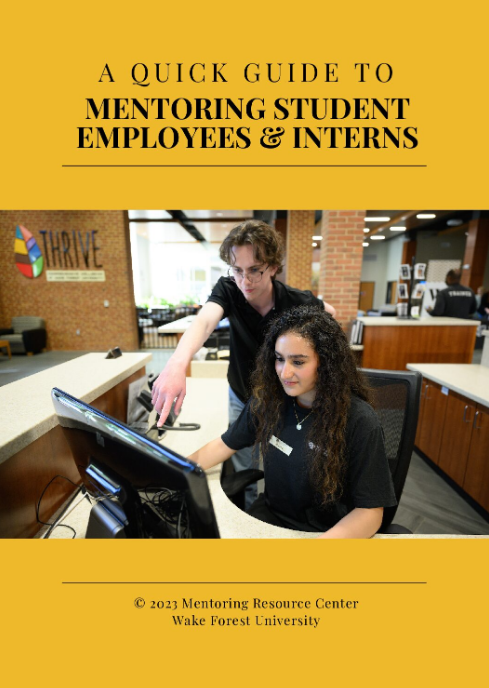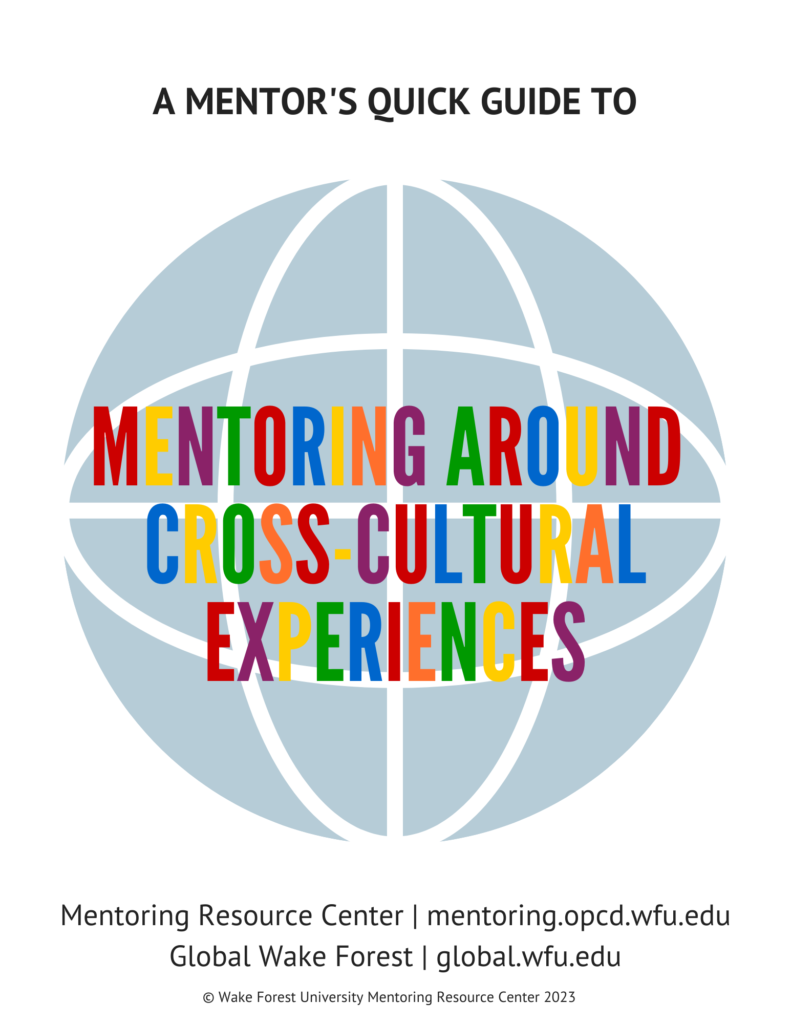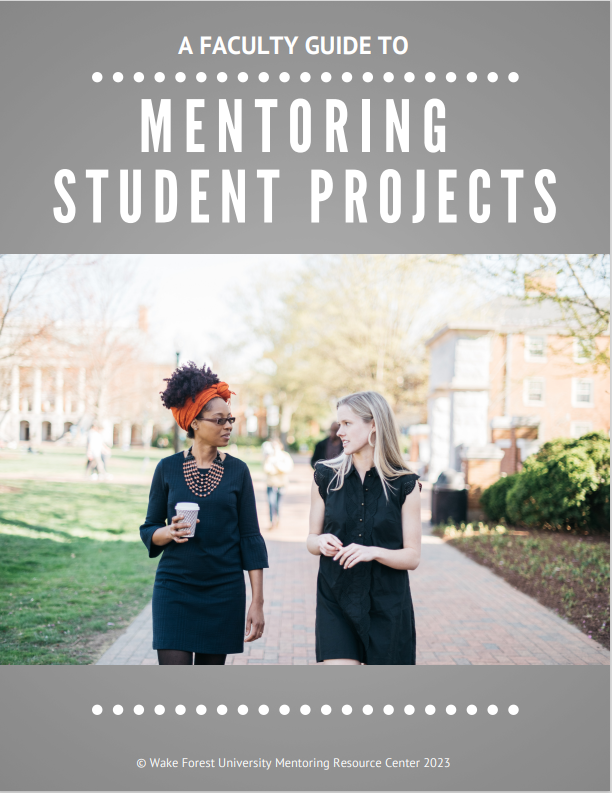As we begin 2024 and the month of January, we hope that you’ll join us in celebrating National Mentoring Month – a time to recommit to one another as a campus community and to consider how we can better support, encourage, and build relationships with each other through mentoring.
With the start of a new year often comes the beginning of new relationships, new experiences, and new opportunities for growth and learning. There’s usually some impetus – or gaining of momentum – that happens in new settings or experiences along the way that transforms them into unique learning opportunities for personal and professional development. Momentum for growth and development often occurs when mentorship is a pivotal part of those learning experiences.
According to the Strada 2022 Alumni Outcomes Survey, higher skill development in college is tied to student participation in extracurricular activities and experiences. We also know from David A. Kolb’s principles and cycle of experiential learning that new experiences combined with mentoring conversations further contribute to skill development and personal and professional growth.
In fact, our Wake Forest mentoring conversation model is based on this cycle.
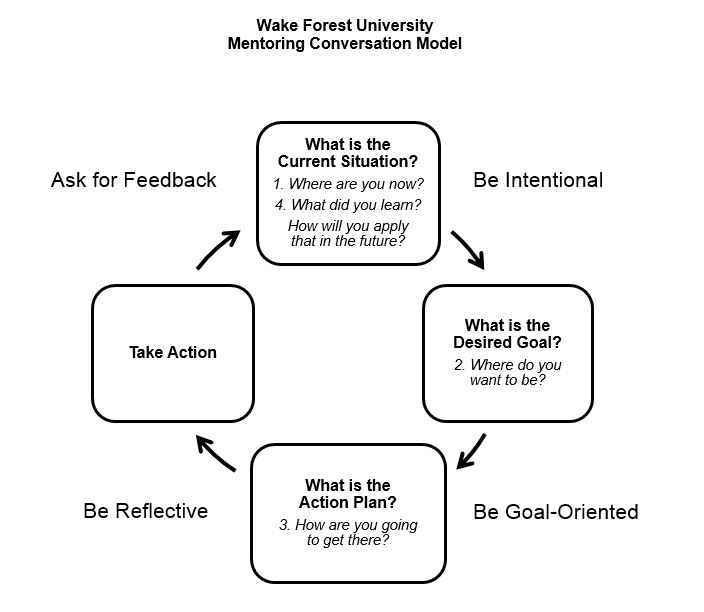
Students: Elevate Your Learning Experiences with Mentoring Relationships & Conversations
Experiential learning is happening everywhere! In fact, as a student you’re probably already engaging in numerous experiential learning opportunities. These might include student employment, internships, study abroad, student organization involvement or leadership, research with a faculty member, or a civic/volunteer experience.
As you think about the key learning experiences you’re currently involved with, use the COREFour Mentoring Skills as a framework for navigating your experiences. Seek out a trusted mentor, adviser, professor, manager, or peer to discuss these questions:
Set Goals:
- How might this internship or student employment experience inform my future career plans?
- What skills am I hoping to gain through this leadership or volunteer experience?
- What specific expertise am I hoping to gain from helping a faculty member with this research project?
Build Relationships:
- Who (at my internship, in my study abroad program, at this volunteer site, etc.) can help me learn more about this career field and the background needed to get into this type of work?
- What connections am I hoping to make through this experience and who is already in my network that I can continue to build relationships with?
- How can I maintain these new connections after this learning experience?
Seek Feedback:
- What are 2-3 things I did particularly well on this project?
- What are 1-2 areas of growth or improvement for me?
- How can I apply what I’ve learned here to the next project or experience?
Practice Reflection:
- How have I grown and changed since the beginning of this experience?
- How can I use this experience to inform my future decision-making?
- Did I achieve the goals that were originally set for this experience? If not, what could have been done differently?
Mentoring Spotlights:
Videos recorded and edited by Kathrine Kiersted (’25)
Want more resources? Check out these guides made specifically for students as they build relationships and develop mentoring skills during experiential learning opportunities:
Faculty, Staff, and Mentors: How to Support Students During Learning Experiences
Whether you are a faculty member overseeing a student research project, a staff member supervising a student employee, or are involved in mentoring students in various settings, we’ve created several resource guides to help you think more intentionally about using best mentoring practices in these relationships and learning experiences with students.
Looking for more tools and resources like these? See all of our Tools & Resources designed for mentors, mentees, faculty & staff, and mentoring programs coordinators (you’ll be prompted to use your Wake Forest Google log-in to access).

